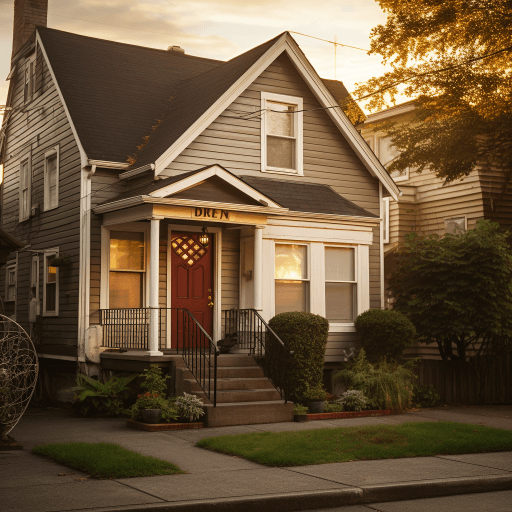Navigating the Property Ladder: To Own or Rent?

Deciding between homeownership and renting is a pivotal choice with significant financial and lifestyle implications. This article delves into the advantages and drawbacks of each, helping you understand how they can impact your present and future.
Exploring the Benefits of Home Ownership
Embarking on the journey of home ownership often begins with an aspiration for stability and the pursuit of an investment that can appreciate over time. One of the foremost advantages of owning a home is the sense of permanence it provides. Homeowners can settle into a community, foster long-term relationships with neighbors, and have the reassurance of a consistent living environment, free from the uncertainties of landlord decisions.
Financially, the benefits of home ownership can be substantial. As property values generally tend to appreciate, owners may see an increase in their home's worth, fostering wealth accumulation. Historically, real estate has been seen as a relatively safe investment when compared to more volatile markets. Furthermore, with each mortgage payment, homeowners are building equity in their property—a stark contrast to rent payments, which offer no return on investment.
There are tax advantages to take into account as well. Homeowners in many jurisdictions enjoy deductions for mortgage interest and property taxes from their income taxes, tangibly reducing their annual tax liability. Additionally, homeowners have the freedom to modify their property to suit their tastes and needs without needing permissions typically required by landlords.
Nevertheless, home ownership comes tethered with a suite of responsibilities. Maintenance and repairs fall solely on the homeowner, which can mean unexpected expenses and the need for hands-on involvement in the upkeep of the property. Mortgage payments, homeowners insurance, and property taxes add to the monthly financial obligations and require stable income to manage effectively.
Renting: Flexibility and Financial Considerations
On the other side of the housing spectrum, renting a home offers distinct advantages particularly in terms of flexibility and financial outlay. Renting is often associated with a lower initial financial commitment, as renters typically are not responsible for paying real estate taxes, homeowners insurance, or maintenance costs—these remain the landlord's responsibility. Such financial savings can translate into more immediate budgeting flexibility for renters.
The flexibility extends to mobility, as renters can more easily relocate in response to job opportunities or personal circumstances. Lease terms tend to be short, typically one year, providing renters the option to move without the significant transaction costs associated with buying and selling property. This transitory nature can be particularly attractive to those not yet ready to settle down or for those in fluctuating job markets.
However, the impermanence of renting can also be a drawback. Unlike homeowners, renters do not build equity in their living space. Rental payments offer no financial return and rent can increase over time, subject to market rates and landlord discretion. Additionally, renters often have limited abilities to customize their living space, as significant alterations typically require landlord approval and might not be permitted.
Long-term Financial Implications
The decision between owning and renting extends into the future, impacting long-term financial planning. Home ownership can be part of a broader investment strategy, enabling owners to potentially leverage their property’s equity for other financial opportunities. Meanwhile, renters may have the option to invest money saved from lower living expenses into other appreciating assets, assuming disciplined savings practices.
Real-world examples underscore these implications. Consider the case of a homeowner who purchased a property in a burgeoning area—over a decade, the value of their home may have doubled, providing a substantial return on investment. Conversely, a renter, free from property taxes and maintenance costs, might have channeled those would-be expenses into a diversified investment portfolio, yielding substantial gains as well.
Assessing Lifestyle Preferences and Mobility Needs
Lifestyle choices and personal priorities play a central role in the decision between owning and renting. Those who prioritize job mobility or prefer not to commit to one location may find renting more aligned with their lifestyle. Renters can pursue opportunities with the knowledge that they can move without the cumbersome process of selling a home. In contrast, individuals looking for stability and community roots might prefer the permanence home ownership offers.
Ultimately, the decision to own or rent is contingent upon a combination of financial capability, lifestyle preferences, job stability, and mobility needs. Each individual must weigh the sense of security and potential for financial return that comes with home ownership against the flexibility and often lower upfront costs of renting. It's a personal calculus that determines which housing option will best support one’s current life stage and future aspirations.
In conclusion, the choice between owning a home and renting hinges on personal circumstances, financial capabilities, and long-term goals. Each option offers distinct benefits and limitations that require careful consideration.